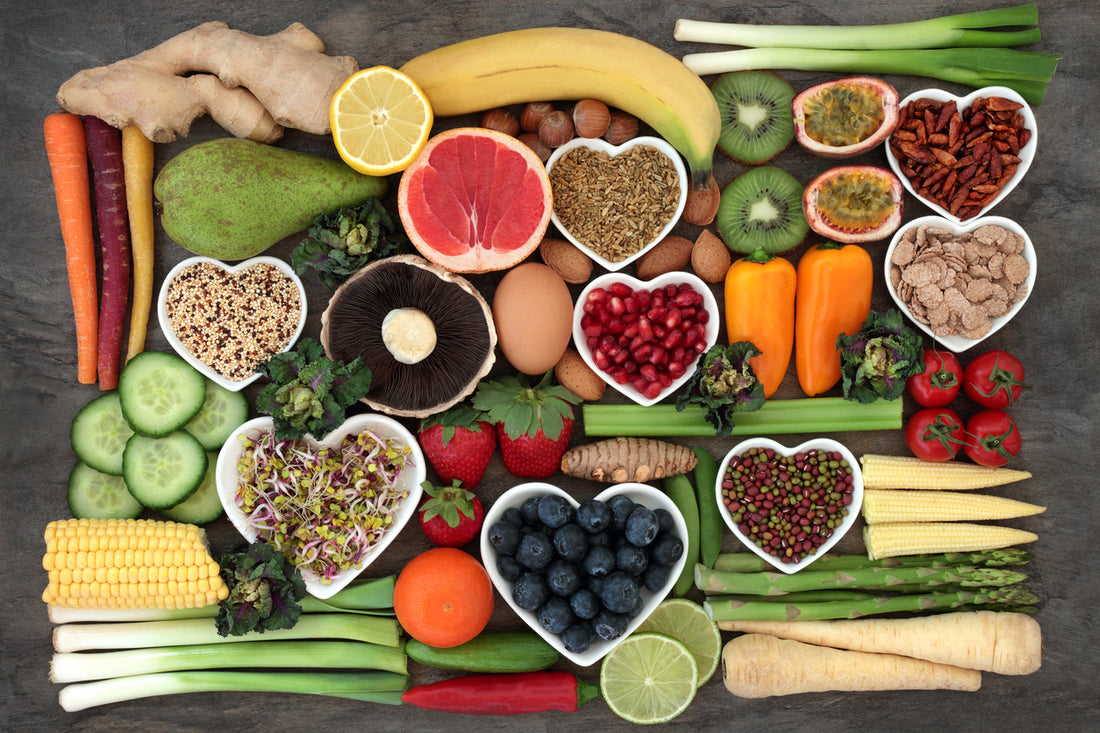Foods are organic compounds and our bodies resemble chemistry lab test tubes. Our bodies can undergo chemical reactions that can range from tranquil to explosive, just like in other chemical experiments. A gastric explosion is more likely to occur when a manufactured grocery product contains more additives.
We digest food at different rates in different acid/alkaline conditions, much like how cars accelerate and move at different speeds. On a one-lane road, if a slower car is in front of a quicker one, the faster one must move gently to avoid a collision. Food in the digestive tract creates an accident in the form of indigestion, bloating, and inadequate assimilation when the faster food collides with the slower food. These mishaps primarily occur when you consume such meals at a single meal or time.
Food Combining:
Combining foods with the greatest nutritional density and ease of digestion is one way to ensure rapid nutrient absorption and effective waste removal.
Even if the diet consists only of live items, the assortment of meals consumed at one time might support or obstruct this process.
Two Guidelines For Combining Food:
Your digestive fluids should not be neutralized
-
Protein-dominant foods require the acid juices formed in the stomach to break them down
-
Starch-dominant foods require the alkaline fluids produced in the mouth for complete digestion
-
When the acidic juices mix with the alkaline juices they tend to neutralize each other, thus digestion is impaired and incomplete
Avoid slowing down quickly digested foods
-
Foods digest at a different rate in different acid/alkaline environments
-
When a food that digest quickly is eaten after a food that takes more time to digest, the process is impaired
-
This causes indigestion, fermentation, bloating, and poor assimilation
-
The four basic food combination groups:
Proteins
-
Average digestion time is 4 hours
-
Seeds: Pumpkin, sesame, sunflower, hemp, chia
-
Nuts: Almonds, Brazilian nuts, Pecans, Pine Nuts, Walnuts (no peanuts or cashews)
Starches
-
Average digestion time is 3 hours
-
Sprouted Grains: Amaranth, Barley, Millet, Quinoa, Rye, Teff
-
Sprouted Legumes: Chickpeas, Read beans, Fava beans Hard winter
-
Squashes: Acorn, Butternut, Hubbard, Kabocha, Spaghetti squash, Sweet potatoes and Yams
Vegetables
-
Average digestion time is 2 hours
-
Sprouted Greens: Alfalfa, Arugula, Buckwheat, Cabbage, Clover, Kale, Mustard, Pea greens, Radish, Sunflower greens
-
Fruit Vegetables: Cucumber, Red bell pepper, Summer squash, Zucchini
-
Leafy Greens: Arugula, Asparagus, Broccoli, Bok choy, Cabbage, Cauliflower, Celery, Chard, Collard greens, Kale, Lettuce, Mizuna, Mustard greens, Scallions, Spinach, Watercress
-
Low-Starch Root Vegetables: Jicama, Burdock, Carrots, Parsnips, Radishes, Turnips
Fruits
-
Average digestion time is 2 hours; for Melons 15-30 minutes
-
Acid: Grapefruits, Lemons, Oranges, Pomegranates, Strawberries
-
Sub-Acide: Apples, Apricots, Most Berries, Grapes, Kiwis, Mango, Pears, Peaches
-
Sweet: Bananas, All dried fruit, Persimmons
-
Melons: Canary, Cantaloupe, Crenshaw, Honeydew, Persian, Santa Claus, and Watermelon
The Four Golden Rules:
-
You should never combine starchy carbohydrate- and protein-heavy meals.
-
Vegetables pair nicely with each category, but not simultaneously.
-
-
Never combine fruits and vegetables for a dinner.
-
Vegetables and fruits digest at varying speeds
-
When ingested simultaneously, they may result in gas and bloating from a digestive system backup
-
-
Consume fruit only when it is actually ripe and only when you are healthy.
-
Fruit is frequently chosen before it is fully ripe to increase its shelf life, but when consumed, unripe fruit removes the body's ability to ripen it
-
Fruit also includes sugar, and sugar in general feeds disease
-
When the pancreas isn't functioning properly, sugar enters the bloodstream and fuels disease because sugar is hard on the organ
-
15% of your diet can be fruit once you're in peak health
-
Fruit juice should include between 75% and 90% water
-
-
Melons should be eaten alone or with other melons
-
Melons can ferment quickly and digest swiftly
-
When consumed alongside other foods that take longer to digest, they will be delayed, ferment, and might result in unpleasant gas and bloating
-
They will ferment after some time in the system and result in painful gas
-
Food Combination Guidelines:
-
Select foods from the same category at each meal for the greatest results. If you do combine, keep these rules in mind
-
Avoid consuming starchy carbohydrates with any acids, fruit, or foods high in protein.
-
Any weak acid will kill the digestive enzymes for carbs
-
-
Vegetables and fruits do not mix.
-
Fruits' sugar and acids slow down the breakdown of veggies' carbs, which might result in fermentation, bloating, and gas
-
Eat veggies and fruits during different meals (occasionally, a fruit dessert can be eaten 3 hours after a vegetable meal)
-
-
Although all greens combine well, the fewer ingredients the better.
-
A meal shouldn't contain more than one protein or fat
-
-
Avoid drinking while eating.
-
Drink 2-3 hours after eating or 15-30 minutes before a meal to avoid diluting the digestive fluids
-
Due to the high water content of living foods, thirst is unlikely to occur after eating them unless you have already experienced dehydration
-
-
Prior to any prepared food, consume raw food.
-
Eating raw food first helps to provide enzymes for the subsequent digestion of cooked food
-
-
Do not combine acidic and sweet fruits.
-
Sub-acid fruits can occasionally be eaten alongside either acid or sweet fruits when conditions are right
-
Avoid all fruits if you are ill or have a health issue, and keep fruit consumption to under 15% of your diet
-
Helpful Digestive Tips:
-
Chew your food as much as possible
-
Keep yourself hydrated all day
-
Try not eating anything at least 3 hours before bedtime
Sources: Hippocrates Health Institute, Permacharts
